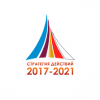A pilot project for the artificial breeding of Artemia cysts using an innovative pond method in collaboration with the German Society for International Cooperation (GIZ), in the Khojeyli region, Republic of Karakalpakstan.
The regional project “Environmentally oriented regional development of the Aral Sea region” (ECO ARAL) is implemented by the Deutsche Gesellschaft für Internationale Zusammenarbeit (GIZ) by the German Society for International Cooperation (GIZ) on behalf of the German Federal Ministry for Economic Cooperation and Development (BMZ). The project supports the governments of Kazakhstan and Uzbekistan in achieving environmentally and climate-sustainable economic development in cross-border countries. The project, running from July 2020 to June 2024, focuses on solving environmental problems. The main objective of the project is to help stakeholders in the Aral Sea region make environmentally oriented investment decisions. One of the important components of the project is the development of aquaculture in the region, especially the production of artemia. In previous stages of the project, the first pilot site (pond) for aquaculture in Karakalpakstan was created, specifically designed for the production of artemia. Based on experience with this pond and the results of previous studies, the project aims to create a second pilot pond using new technologies and designs.
- Construction of an Artemia cyst using an innovative method in an artificial reservoir in the Aral Sea region.
- Using a natural salt lake.
- Construction of artificial salt ponds on 2 hectares of land.
- Use of drainage (collector) waters.
- Cultivation of a new type of artemia “Franciscano”.
- Processing (drying) of Artemia cysts.
- Organization of deep processing of Artemia biomass.
- Implementation period 2024
- Land area: 17 hectares
![]()

















